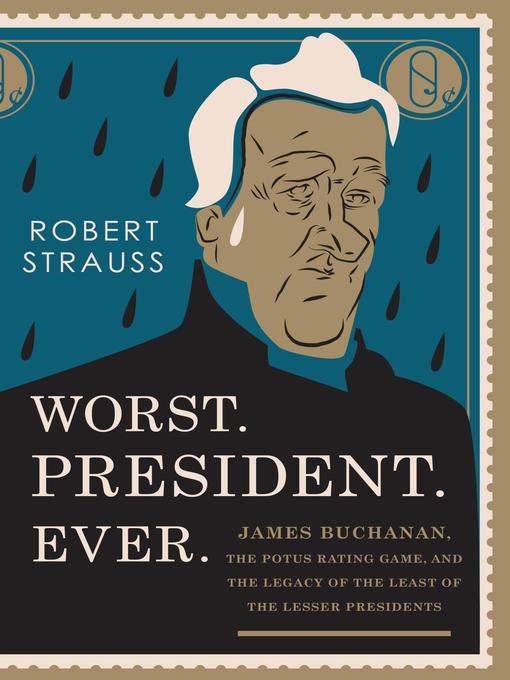
Worst. President. Ever.
James Buchanan, the POTUS Rating Game, and the Legacy of the Least of the Lesser Presidents
کتاب های مرتبط
- اطلاعات
- نقد و بررسی
- دیدگاه کاربران
نقد و بررسی

August 15, 2016
Journalist Strauss (Daddy’s Little Goalie) turns his lifelong interest in U.S. presidents into a biography of the 15th, mining the premise that Buchanan (1791–1868) is the worst of them all. Along the way, Strauss takes the opportunity to exercise his wit and knowledge to rate the candidates for the title. Before getting to Buchanan’s presidency and the case for him as the worst, Strauss follows a career that included time as a congressman and senator from Pennsylvania, the U.S. minister to Russia in the Andrew Jackson administration (whom Strauss describes as the “Don Corleone of his day”), and as a perennially unsuccessful candidate for the Democratic Party’s presidential nomination. Strauss frequently detours into examining the evidence supporting the possibility that lifelong bachelor Buchanan was gay, and takes an inventory of other U.S. Presidents who might have been gay. The process of nominating and then rejecting other contenders for the eponymous title is an entertaining exercise in which Franklin Pierce, Herbert Hoover, Warren Harding, and several others are examined and discarded in favor of Buchanan. Strauss maintains a light tone, but doesn’t sacrifice substance in offering solid historic detail and insights into American politics as the country careened toward Civil War.

An oddly entertaining study of "the first plodding-to-the-top president," a man mercifully forgotten by history.James Buchanan (1791-1868) was a Pennsylvanian, writes Strauss (Nonfiction Writing/Univ. of Pennsylvania; Daddy's Little Goalie: A Father, His Daughters, and Sports, 2011), the log cabin of his birth now enshrined on a rural campus in Mercersburg. Yet, having survived the turmoil of the collapse of the Whig and Federalist factions, he cast his lot with the Southern Democrats. As president--a job for which he had prepared well if unimaginatively, plodding from one political post to another--he meddled in the Supreme Court decision in the matter of runaway slave Dred Scott, setting the Civil War in motion. Buchanan wasn't on hand for the bloodletting, but he took time to write his successor, Abraham Lincoln, to ask for the return of some books he'd left behind at the White House. He may have had good intentions, but fueled by a diet of reading about Napoleon and exhibiting a combination of "hubris...arrogance, misaligned affections, indecisiveness, and misreading of current events," Buchanan managed to trash pretty much whatever he touched. Does that make the self-styled "strict constructionist" the worst president in American history? Yes, by Strauss' account; he was feckless and not interested in being guided toward doing a good job, he surrounded himself with yes men, and, lacking good counsel and left to his own devices, "he would often waffle on major issues, and could easily come up on the most ill-advised side of them." Its juvenile title aside, and even allowing for a couple of positives for its subject, Strauss' biography makes a convincing case for disdaining Buchanan, who, he writes in a concluding survey, has only two real rivals, both also forgotten: Warren G. Harding and Franklin Pierce. Heavy-handed enough at times to make readers wish someone out there might step up to Buchanan's defense; nonetheless, Strauss makes a firm argument for the essential doofusness of the 15th president. COPYRIGHT(1) Kirkus Reviews, ALL RIGHTS RESERVED.

























دیدگاه کاربران